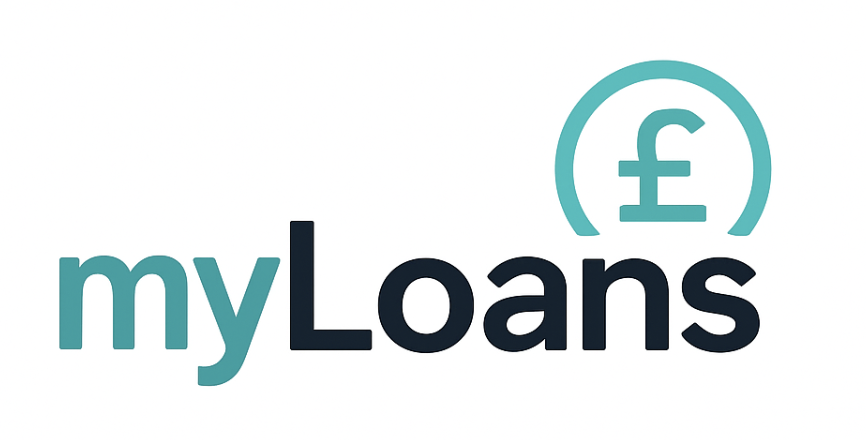Navigating Loans for Self-Employed Individuals
Securing finance as a self-employed person can feel more complex than it is for salaried employees. Without a fixed monthly payslip, freelancers, contractors, and business owners often face stricter affordability checks and higher documentation requirements. But with preparation and the right lender, accessing loans as a self-employed individual is absolutely possible.
The Challenge for the Self-Employed
Traditional employees can demonstrate income stability with payslips and P60s. Self-employed individuals, however, need to evidence their income and financial health in other ways. Lenders want reassurance that repayments will be affordable and sustainable, so being organised with your financial records is essential.
The Role of Documentation
When applying for a loan in the UK, self-employed borrowers are usually asked for:
-
SA302s and Tax Year Overviews – Typically covering the last 2–3 years, available from HMRC or your accountant.
-
Business Accounts – Preferably prepared or certified by an accountant.
-
Bank Statements – Both personal and business, usually covering the last 3–6 months, to demonstrate cash flow.
-
Proof of ID and Address – Standard requirements under UK lending rules.
If you’ve been self-employed for less than two years, borrowing may be more difficult, but some specialist lenders will consider your application.
Types of Loans Available
Personal Loans
Personal loans are versatile and can be used for a variety of purposes. They are usually unsecured, meaning no collateral is needed. Interest rates, however, may be higher if your income is irregular or your credit history isn’t strong.
Business Loans
For business purposes, a dedicated business loan may be more appropriate. High street banks, challenger banks, and alternative lenders all provide options. These usually require:
-
A solid business plan.
-
Financial projections.
-
Evidence of trading history and profits.
Secured Loans (Homeowner Loans)
Secured loans are tied to an asset, usually property. Because the lender’s risk is lower, the rates are often more competitive. However, your home or asset could be at risk if you fail to repay.
Self-Employed Mortgages
Mortgages are one of the more challenging areas for the self-employed. Lenders typically:
-
Ask for 2–3 years of SA302s or accountant-prepared accounts.
-
May require a larger deposit (often 15–25%).
-
Base affordability on your average profits across recent years.
Working with a specialist mortgage broker can make this process smoother.
Loans for Self-Employed with Poor Credit
Poor credit can make borrowing more difficult, but options do exist in the UK:
-
Credit Unions – Community-based lenders offering fairer rates.
-
Specialist Lenders – Some focus on applicants with adverse credit histories.
-
Guarantor Loans – A family member or friend guarantees the repayments.
Be cautious with high-cost credit such as payday loans — these are tightly regulated by the FCA and can quickly become expensive.
Government Support and Alternatives
The UK government and related bodies offer several forms of support:
-
Start Up Loans (via the British Business Bank) – Unsecured loans up to £25,000 per director, with mentoring included.
-
Recovery Loan Scheme (RLS) – Helps SMEs access finance for growth and investment.
-
Grants and Local Funding – Depending on your sector and region, grant funding may be available.
Alternatives such as invoice financing, asset finance, or crowdfunding can also be worth exploring if traditional loans are hard to secure.
Tips for a Successful Application
-
Get your finances in order – Make sure tax returns and accounts are up-to-date.
-
Build your credit profile – Pay bills on time, reduce outstanding debts, and register on the electoral roll.
-
Save for a deposit – Particularly important if applying for a mortgage.
-
Seek advice – A financial advisor or broker can help match you with lenders who understand self-employed applicants.
Conclusion
While being self-employed can add hurdles to the loan process, it doesn’t need to be a barrier. By preparing strong documentation, understanding lender requirements, and exploring both mainstream and specialist options, you can find finance that supports your personal or business goals. With the right approach, borrowing as a self-employed individual in the UK is not only possible but achievable.
Alternatives to Payday Loans | Safer Borrowing Options
Payday loans are often marketed as a quick fix for cash emergencies, but they are not the only option available. Whether you’re facing an unexpected bill, car repair, or temporary cash shortfall, there are several alternatives to payday loans that may offer lower...
Payday Loans with Bad Credit | Direct Lender Options
If you’ve been refused credit elsewhere and are wondering whether you can still get a payday loan with bad credit, you’re not alone. Thousands of people in the UK search every month for options like “payday loans with bad credit” or “direct lender payday loans”. While...
Personal Loan Debt Consolidation UK – Is It Right for You?
Juggling multiple credit cards, overdrafts, or loans can be stressful and expensive. A debt consolidation loan allows you to combine everything into a single monthly repayment, often at a lower interest rate. In 2025, UK lenders from high street banks to online...
Emergency Loans UK – How to Borrow Fast in 2025
When an urgent expense hits — like car repairs, medical bills, or a broken boiler — quick access to funds can be essential. In 2025, emergency loans in the UK provide a way to borrow fast, with some lenders offering same-day decisions and payouts. This guide explains...
Top 10 Personal Loan Providers UK 2025 – Rates, Features & Eligibility
The UK personal loan market in 2025 offers more choice than ever, with banks, supermarkets, online lenders, and credit unions all competing for borrowers. The best deal for you depends on your credit score, loan size, and repayment term — but comparing providers side...
Best Debt Consolidation Loans UK 2025 | Top Options
Managing multiple debts can feel overwhelming, especially with credit cards, overdrafts, and personal loans all charging different interest rates. A debt consolidation loan can simplify your finances by rolling everything into one fixed monthly repayment — often at a...
Best Bad Credit Loans UK 2025 – Top Lenders Compared
Having a poor credit score, CCJs, or past defaults doesn’t mean borrowing is out of reach. In 2025, several UK lenders specialise in products designed for people with bad credit — offering smaller loans, flexible repayment terms, and eligibility checks that won’t harm...
Home Repair Loans UK – How to Cover Unexpected Costs in 2025
A leaking roof, broken boiler, or urgent plumbing issue can quickly turn into an expensive problem — often when savings aren’t available. In 2025, home repair loans in the UK provide a way to spread the cost of essential fixes into manageable monthly repayments. This...
Green Energy Loans UK – How to Finance Eco-Friendly Home Improvements in 2025
Eco-friendly upgrades such as solar panels, insulation, heat pumps, and EV chargers can cut energy bills and boost property value — but they require a significant upfront investment. In 2025, green energy loans in the UK provide a way to spread the cost of sustainable...
Moving House Loans UK – How to Cover Relocation Costs in 2025
From deposits and removal vans to solicitor fees and new furniture, moving house in the UK can quickly add up to thousands of pounds. Not everyone has savings set aside to cover these costs upfront. In 2025, moving house loans in the UK provide a way to spread...
Education Loans UK – How to Fund Studies and Professional Courses in 2025
Not all education in the UK is covered by government student finance. Postgraduate degrees, professional qualifications, and private training often require self-funding — with tuition fees and course costs running into thousands of pounds. In 2025, education loans in...
Holiday Loans UK – How to Spread the Cost of Travel in 2025
Holidays can be some of the most rewarding experiences of the year, but they often come with a price tag that’s hard to cover upfront. From flights and hotels to all-inclusive packages and once-in-a-lifetime trips, the costs can add up quickly. In 2025, holiday loans...
Best Personal Loans UK 2025 – Top Lenders Compared
The UK personal loan market in 2025 is more competitive than ever, with high street banks, supermarkets, online lenders, and credit unions all offering products to suit different needs. Choosing the right provider can save you hundreds in interest and ensure...
Medical Loans UK – How to Finance Healthcare Costs in 2025
While the NHS covers most essential treatment, waiting lists, private care, and specialist procedures mean many people face out-of-pocket medical expenses. From dental work and fertility treatment to cosmetic surgery and urgent private healthcare, costs can run into...
Car Loans UK – Personal Loan vs Hire Purchase vs PCP in 2025
Buying a car in 2025 usually means more than just choosing the right vehicle — it also means deciding how to pay for it. In the UK, the three main options are a personal loan, hire purchase (HP), or personal contract purchase (PCP). Each has its own advantages,...
















